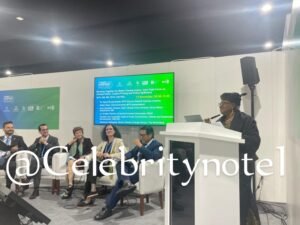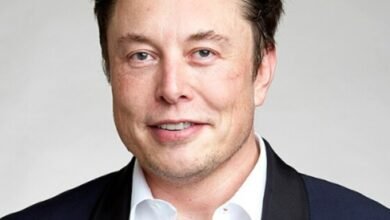COP29 Discusses Unified Carbon Pricing for a Globalized World
"Bridge the Divide" - Ngozi Okonjo-Iweala

COP29 Discusses Unified Carbon Pricing for a Globalized World, “Bridge The Divide” – Ngozi Okonjo-Iweala, WTO
Advertisements
Today at COP29 in Baku, the Multilateral Institutions Task Force on Climate Action took on one of the most pressing challenges in the climate policy arena which is harmonizing carbon pricing globally. The session, attended by world-renowned experts and officials, highlighted the growing maze of carbon taxes and emissions trading systems currently in effect, estimated at around 75 worldwide. This multitude of regulations creates a complic@ted and costly compliance situation, particularly for small and medium-sized enterprises (SMEs) that face the heaviest burdens under these fragmented policies.
 The session’s thought leaders, including WTO’s Chief Economist Ralph Ossa, IMF’s Dora Benedek, UNCTAD’s Chantal Line Carpentier, World Bank’s Stéphane Hallegatte, and WTO’s Hoe Lim Aik, all contributed insights into a potential solution hanging on coordinated international climate policies.
The session’s thought leaders, including WTO’s Chief Economist Ralph Ossa, IMF’s Dora Benedek, UNCTAD’s Chantal Line Carpentier, World Bank’s Stéphane Hallegatte, and WTO’s Hoe Lim Aik, all contributed insights into a potential solution hanging on coordinated international climate policies.
 The differences in national carbon pricing schemes poses a number of risks. On the one hand, the compliance costs of navigating different requirements are high, and often disproportionately affect SMEs. Unlike large corporations with the resources to handle complex regulatory requirements across borders, SMEs often lack the capacity to keep up with the bulk of regional or national carbon pricing structures. Additionally, as governments enact unilateral policies in an attempt to solve emissions, cross-border trade tensions rise, and countries with more relaxed policies can potentially attract businesses fleeing higher carbon taxes elsewhere.
The differences in national carbon pricing schemes poses a number of risks. On the one hand, the compliance costs of navigating different requirements are high, and often disproportionately affect SMEs. Unlike large corporations with the resources to handle complex regulatory requirements across borders, SMEs often lack the capacity to keep up with the bulk of regional or national carbon pricing structures. Additionally, as governments enact unilateral policies in an attempt to solve emissions, cross-border trade tensions rise, and countries with more relaxed policies can potentially attract businesses fleeing higher carbon taxes elsewhere.
So, what can be done to overcome these obstacles? The Task Force emphasized the need for a coordinated approach to carbon pricing policies led by multilateral organizations, such as the World Trade Organization (WTO). By aligning on a unified carbon pricing mechanism, nations could not only streamline compliance but also level the playing field, ensuring that all countries, regardless of economic power, contribute fairly to climate action.
 With Ngozi Okonjo-Iweala, WTO’s director, spotlighting this issue in her post, it’s clear that international institutions see this as a moment to establish a new collaborative approach. Global cooperation could mitigate trade friction, protect small businesses, and lead to a more effective climate response. Key multilateral organizations like the IMF, UNCTAD, and World Bank bring unique standpoints to this solution, understanding not only trade and environmental impact but also economic equity.
With Ngozi Okonjo-Iweala, WTO’s director, spotlighting this issue in her post, it’s clear that international institutions see this as a moment to establish a new collaborative approach. Global cooperation could mitigate trade friction, protect small businesses, and lead to a more effective climate response. Key multilateral organizations like the IMF, UNCTAD, and World Bank bring unique standpoints to this solution, understanding not only trade and environmental impact but also economic equity.
Generally, while the push for coordinated climate policies is in its early stages, today’s session reflects a promising step toward unifying carbon pricing on a global scale, Ngozi Okonjo-Iweala summited.









